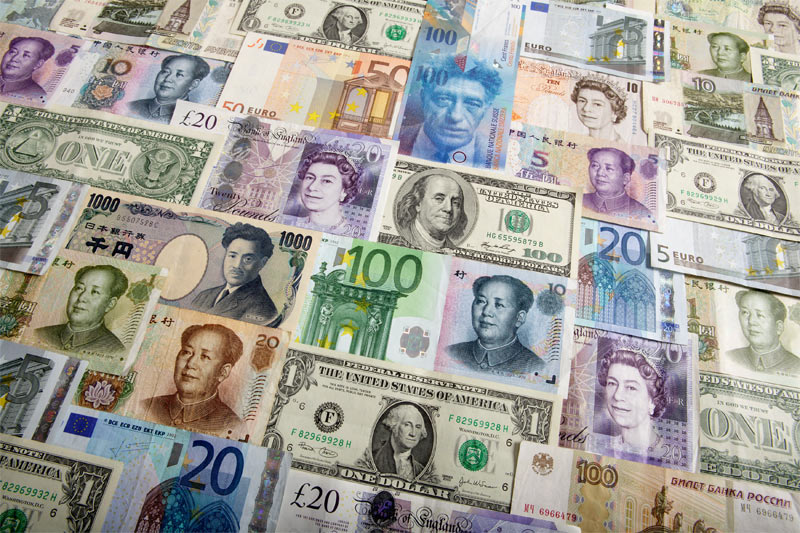Investing.com - The dollar was lower against the yen on Wednesday following the release of weak U.S. housing data, while data indicating that the recovery in the euro zone is gaining traction supported the shared currency.
USD/JPY touched lows of 102.17 and was last down 0.24% to 102.35.
Data released on Wednesday showed that sales of new homes in the U.S. fell to the lowest level since July 2013 in March.
The Commerce Department reported that sales on new homes dropped 14.5% to a seasonally adjusted rate of 384,000. Market expectations had been for sales rate of 450,000.
EUR/USD was up 0.14% to 1.3824, after rising as high as 1.3855 earlier.
The euro was boosted after data showed that the recovery in the euro zone private sector continued this month, but pointed to a divergence between Germany and France.
The euro zone manufacturing purchasing managers’ index rose to 53.3 this month from 53.0 in March, compared to expectations for an unchanged reading.
The bloc’s services PMI rose to 53.1 from 52.2 the previous month, better then forecasts for 52.4.
The recovery in Germany, the euro zone’s largest economy accelerated this month, with activity in both the manufacturing and service sector strengthening, but growth in the French private sector lost momentum.
Sterling was lower against the dollar, with GBP/USD down 0.28% to 1.6776, backing off the four-and-a-half year highs peaks of 1.6840 reached last Thursday.
The pound slipped after Wednesday’s minutes of the Bank of England’s April meeting showed that the members of the Monetary Policy Committee were “uncertain” about the amount of slack remaining in the economy and also held differing views on the outlook for inflation over the medium term.
The minutes also showed that MPC members voted unanimously to keep interest rates at a record low 0.5%.
A separate report showed that the U.K. government has hit its target for deficit reduction for the last financial year.
The Swiss franc gained ground, with USD/CHF down 0.29% to trade at 0.8824.
The Australian dollar was sharply lower, with AUD/USD dropping 0.89% to 0.9281, after data showed that the country’s inflation rate slowed in the first quarter.
Meanwhile, NZD/USD slipped 0.24% to 0.8583 and USD/CAD edged up 0.12% to 1.1040.
The Canadian dollar remained rangebound after Statistics Canada reported Wednesday that retail sales rose 0.5% in February, while the previous months figure was revised down to 0.9% from a previously reported 1.3%.
The US Dollar Index, which tracks the performance of the greenback versus a basket of six other major currencies, was down 0.08% to 79.91.
